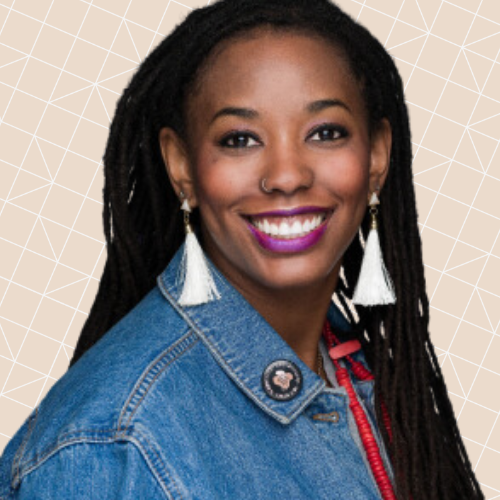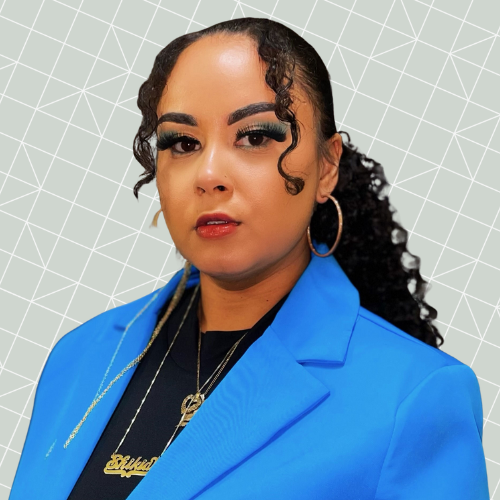Equity+ Belonging in Community Change:
Practicing Inclusion, Shifting Culture, and Deepening Belonging in Community Spaces
Four-Part Customizable Workshop Series |
October - November 2025
Virtual Connection and Workshop Sessions
Coaching and Peer-Learning Calls
Fostering Belonging Through Equity-Centered Action
At Tamarack, we believe that ending poverty in all its forms, whether through social connection, cultural belonging, youth opportunity, financial inclusion, or climate resilience, requires equity to be at the centre of all community change efforts. We view equity and belonging not as optional add-ons, but as essential foundations for building just, inclusive, and thriving communities. Without an intersectional approach that addresses the root causes of systemic inequities, our collective work cannot be truly transformative.
This four-part workshop series will support individuals and organizations working in community, nonprofit, government, and grassroots spaces to navigate difficult conversations around diversity, equity, inclusion, and belonging (DEIB). Participants can choose to participate in any of the workshops. Completing all four workshops will result in a certificate of completion and a discounted rate.
-
Workshop One: Building Shared Language & Grounding in Community
-
Workshop Two: Designing for Belonging – Accessibility, Neurodiversity, and Intersectionality
-
Workshop Three: Gender & Sexual Diversity – 2SLGBTQIA+ Inclusion & Addressing Transphobia
-
Workshop Four: Embedding DEIB into Policy, Culture & Conflict Resolution through Practical Application
Throughout this learning journey, participants will explore how to foster inclusive policies, relationships, and environments while also learning tools to disrupt exclusionary practices. Through a lens of relational accountability and equity-centred systems change, this cohort will offer participants foundational skills and strategies for embedding equity and inclusion into their everyday work.
This workshop series offers a practical, reflective, and supportive learning environment for those looking to deepen their DEIB practice in community change work. Grounded in real-world experiences and co-facilitated by equity practitioners, the sessions will prioritize relationship-building, applied learning, and collective accountability.
key learning objectives
Participants will:
-
Explore key concepts such as equity, diversity, inclusion, accessibility, and reconciliation
-
Reflect on how bias, privilege, and power shape their experiences and communities.
-
Learn tangible tools like the “Circle of Trust” and social location mapping
-
Begin to build trust, deepen self-awareness, and ground ourselves in relational learning and collective accountability.
Who Should Attend?
-
Those looking to deepen their understanding of DEIB in community change.
-
Anyone working with equity-denied communities with a desire to create inclusive spaces of belonging.
-
Community leaders, social sector workers and volunteers, philanthropic changemakers seeking practical tools, frameworks, and peer support to transform systems and centre equity in their work.
- Those ready to shift from an intention to center DEIB to actionable strategies to implement in their work.
Workshop Breakdown
Session 1
Foundations – Building Shared Language & Grounding in Community
October 16, 2025 | 12:30 PM – 2:30 PM ET
This 2-hour introductory session will focus on building a shared understanding of language used in advancing DEIB in community change efforts and how to cultivate spaces of belonging from the onset of a relationship. We will begin by exploring the importance of community and land acknowledgement and invite participants to introduce themselves in relation to the land they are on, their communities, and the values they bring into this space. Next, we will explore strategies to co-create shared agreements, which are the foundation of building community spaces rooted in psychological safety, reciprocity, and care. Participants will explore key concepts such as equity, diversity, inclusion, accessibility, belonging, and reconciliation, while reflecting on how bias, privilege, and power shape their experiences and communities. Through interactive activities like the “Circle of Trust” and social location mapping, we will begin to build trust, deepen self-awareness, and ground ourselves in relational practice and collective accountability.
Select the Oct 16, 2025 option in the registration form below to register for this session
Session 2
Designing for Belonging – Accessibility, Neurodiversity, and Intersectionality
October 23, 2025 | 12:30 PM – 2:30 PM ET
This 2-hour session will focus on understanding accessibility and neurodiversity through the lens of equity and design. We’ll examine the barriers faced by disabled and neurodivergent communities and learn how ableism shows up in physical spaces, policies, and attitudes. Participants will explore ways to design environments, events, and learning spaces that are accessible, inclusive, and responsive to diverse needs. We’ll also reflect on how race, class, gender, and other identities intersect with access and begin building practical strategies for creating more equitable community spaces.
Select the Oct 23, 2025 option in the registration form below to register for this session
Session 3
Gender & Sexual Diversity – 2SLGBTQIA+ Inclusion & Addressing Transphobia
October 30, 2025 | 12:30 PM – 2:30 PM ET
This 2-hour session will focus on building inclusive spaces for 2SLGBTQIA+ communities, with a focus on addressing transphobia and supporting gender-diverse people. Participants will explore the distinctions between sex, gender, and sexuality and understand how colonization has shaped narratives around queerness. We’ll look at real-world examples of trans-inclusive policies, discuss pronoun awareness, and unpack harmful systems like TERF ideology. The session will offer tools for advocacy, language, and community support, centring Two-Spirit voices and decolonizing frameworks of gender and sexuality.
Select the Oct 30, 2025 option in the registration form below to register for this session
Session 4
Embedding DEIB into Policy, Culture & Conflict Resolution
November 6, 2025 | 12:30 PM – 2:30 PM ET
This final 2-hour session will focus on moving from learning to action. Participants will engage in scenario-based group activities to apply what they’ve learned to real-life challenges, including inclusive event planning, equitable decision-making, and conflict resolution. We will explore how to move from symbolic gestures to systemic change by embedding DEIB into workplace culture, governance, and team practices. The session will also include space for debrief, collective reflection, and identifying next steps for integrating DEIB into your community and organization.
Select the Nov 6, 2025 option in the registration form below to register for this session
Participants can register for all four sessions and will receive a certificate of completion and a discounted rate. If you would like to register for all sessions, please select the Oct 16-Nov 6, 2025 option in the registration form.
meet the facilitators

Rochelle Ignacio (she/her) is an equity strategist, facilitator, and community builder who guides organizations through transformative equity and anti-racism work. As the inaugural lead of Tamarack Institute’s Equity & Indigenization team, she developed the Seeds of Transformation framework—grounded in care, belonging, and reconciliation. Rochelle integrates equity into organizational culture through policy development, training, and coaching, with expertise in equitable data practices and anti-Black racism.
Rooted in African Ancestral Spirituality, Rochelle’s relational and systems-based approach is both fierce and gentle. She is also a social entrepreneur advancing Black economic mobility in Edmonton, Alberta.

Shanese Green (nee Steele) (she/they) is a bridge-builder and equity-driven community animator committed to creating spaces of belonging and transformation. As Senior Community Animator, Equity and Reconciliation at Tamarack Institute, Shanese brings 14 years of experience in community development, capacity building, and place-based learning.
An Afro-Indigenous femme of Métis, Trinidadian, and Grenadian descent, Shanese’s work centers decolonial practice, 2SLGBTQIA+ inclusion, and reconciliation. Her approach weaves traditional knowledge with intersectional frameworks to advance equity in youth leadership, policy, and gender-based violence prevention. Shanese is also a published writer whose work reflects a deeply relational, queer, feminist, and pro-Black lens.